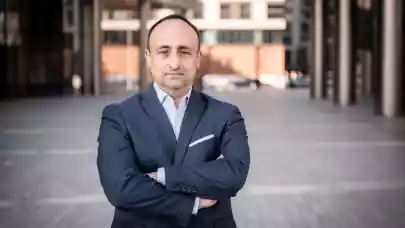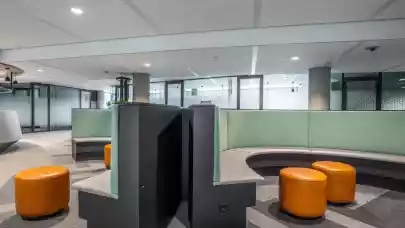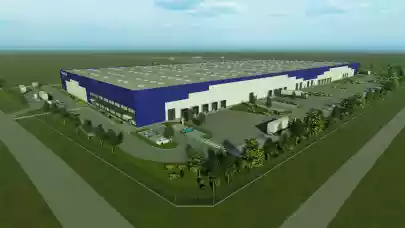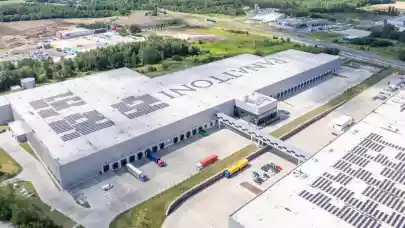
Carlos de León, Country Manager at Acciona Nieruchomości, talked to Property Forum about the key trends driving Poland’s residential market and provided insights into the company’s plans.
This interview was first published in Property Forum’s annual CEE TOP 100 publication.
You are one of the longest-standing foreign developers in the Polish residential market - you have been operating here for almost 20 years. Why does Acciona believe so much in this market?
Poland was defined as a key expansion market almost 30 years ago - in 1999 Acciona acquired a stake in a Polish construction company - Mostostal Warszawa and after Poland’s accession to UE in 2004 the Real Estate division decided to enter the Polish market by merging with MW’s development company - Mostostal Invest. Acciona’s business strategy as well as focus on customer satisfaction together with relying on a strong local team resulted in our sustainable growth, despite market fluctuations. After 20 years we can confirm that Poland is the most stable and highest-growing market within the international activity of Acciona Inmobiliaria. In our team we have people who have been since Acciona's entrance in Poland. They are real experts with very extensive experience and knowledge. With hard work, we have built a recognizable and credible brand and Acciona's values are perfectly in line with the housing needs of the Polish people. We keep moving forward under our watchword Business as Unusual.
How have the preferences of buyers in Poland changed over these two decades?
Polish customers are very conscious and have well-defined preferences. Of course, in the early 2000’s the market was highly imbalanced, with a gap in flats of over 3 million, almost no modern buildings, the poor offer of cooperatives being still a strong market player and a few developers making first steps. Clients were focused mostly on price and timeframe, however quality of construction materials, floorplan design as well and building surroundings appeared as decisive factors relatively soon. As the population has been getting richer, room for upper-segment projects appeared, with requirements of high-end finishing materials, and large apartments with different amenities. Due to the specifics of the Polish climate some of these trends, like extensive winter gardens or roof terraces, can cause a real challenge!
During the COVID-19 outbreak, a temporary trend for ground floor units with gardens appeared, and people noticed the benefits of having a private green area in lockdown. We have always been monitoring customer expectations trying to come out ahead, offering more. Additionally, Acciona is one of the leading firms implementing innovative, pro-ecologic solutions, taking advantage of our international experiences and proven solutions. Focus on ESG and sustainability has been an integral part of our business from the very beginning.
For whom does Acciona build flats in Poland? To which groups of customers do you target your offer?
Acciona’s main goal is to deliver flats for a wide range of customers who have diverse needs and preferences in terms of space, amenities, location and price. As expectations of young people, families with children or silvers are very different, we try to include them at the design stage of each of our projects, with the aim of creating a ‘habitat’ for a community and not only another block of flats. We focus on multi-family, preferably multi-phase developments, where we can design landscaping, social spaces, playgrounds, leisure areas, etc. On the other hand, we are not afraid of downtown mixed-use projects like our Apartamenty Pańska in Warsaw or the redevelopment of historic buildings like in our Kamienna Grobla project in Gdańsk.
What sources do you use to finance your investments? Interest rates in Poland currently remain among the highest in the whole of Europe...
This is an issue, the problem is more complex. In Poland we lack REITs, alternative financing is expensive and there is currently no state policy on financing real estate. Pension funds are not allowed to act on the real estate market. We must rely on commercial bank financing or internal corporate loans. In the case of bank financing high interest rates are one factor, another is bank margins – they are relatively high compared to the safeness of the real estate industry, at least in Poland – we need to finance residential developments for living, not luxury apartments nor second-home/vacation resort projects. The Polish market is far away from any kind of bubble as it is in the vast majority a primary market of flats for living, and the maintaining flats gap is still to be filled by hundreds of thousands of units. Also, population movements are still ongoing, with a continuous inflow of young people to bigger cities, the process that ended outside CEE. Finally, it should be mentioned that we face a huge inflow of foreigners, not only from Ukraine but also from Western Europe, as Poland gives many opportunities for professional growth.
Acciona is known for its emphasis on ecological solutions in its investments. However, buyers in Poland today are not interested in subsidising already expensive flats for their ‘greenness’. When do you think this will change?
Indeed, the economic situation nowadays is not in favour of pro-environmental solutions, also Poland is one of the countries with the lowest rate of meeting housing needs with relatively high flat prices. Changes are taking place slowly, but they are essential. For residents, green building solutions and lower operating costs are very attractive and desirable, there is full consciousness of the need to implement them. Today the key problem is the passing of all ‘eco’ costs to individuals. It is difficult to answer when it may change, I would rather answer that the change will take place when there will be some kind of benefit for the customer arising from having a ‘greener’ flat.
Nevertheless, Acciona is particularly focused on the implementation of ‘green’ solutions in our projects from the very beginning, starting from our Osiedle Leśne emblematic project in Warsaw’s Bemowo district to the latest U-City in Warsaw’s Ursus District. Our specific focus on ESG and taxonomy as well as BREEAM is a commitment made by Acciona against nature, not a marketing slogan. Thus, we incur the vast majority of costs related to these solutions against our margin, we know that aware customers will consider this issue when making a purchasing decision.
What, in your opinion, is currently the biggest barrier when it comes to the supply of new apartments in the largest Polish cities?
There are many barriers, so I would emphasize the following: lack of land for development which results in its high price, unstable legal framework with regulations changing unexpectedly, insufficient planning/zoning, prolonged administrative proceedings that extend the timing of predevelopment activities to 3-5 years, and expensive development financing due to high interest rates and no specific financing for real estate.
What is needed is a thoughtful, long-term, responsible housing policy of the state. I want to clearly emphasize that private developers’ activity does not contradict social housing, on the contrary, they should complement each other. Occasionally, good ideas and solutions appear in the public space, however, we need consent regarding housing policy on all levels, starting from the state.



